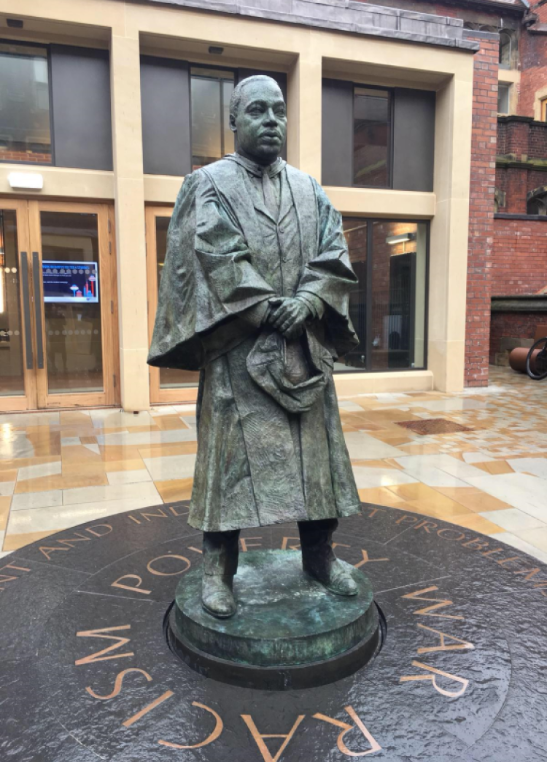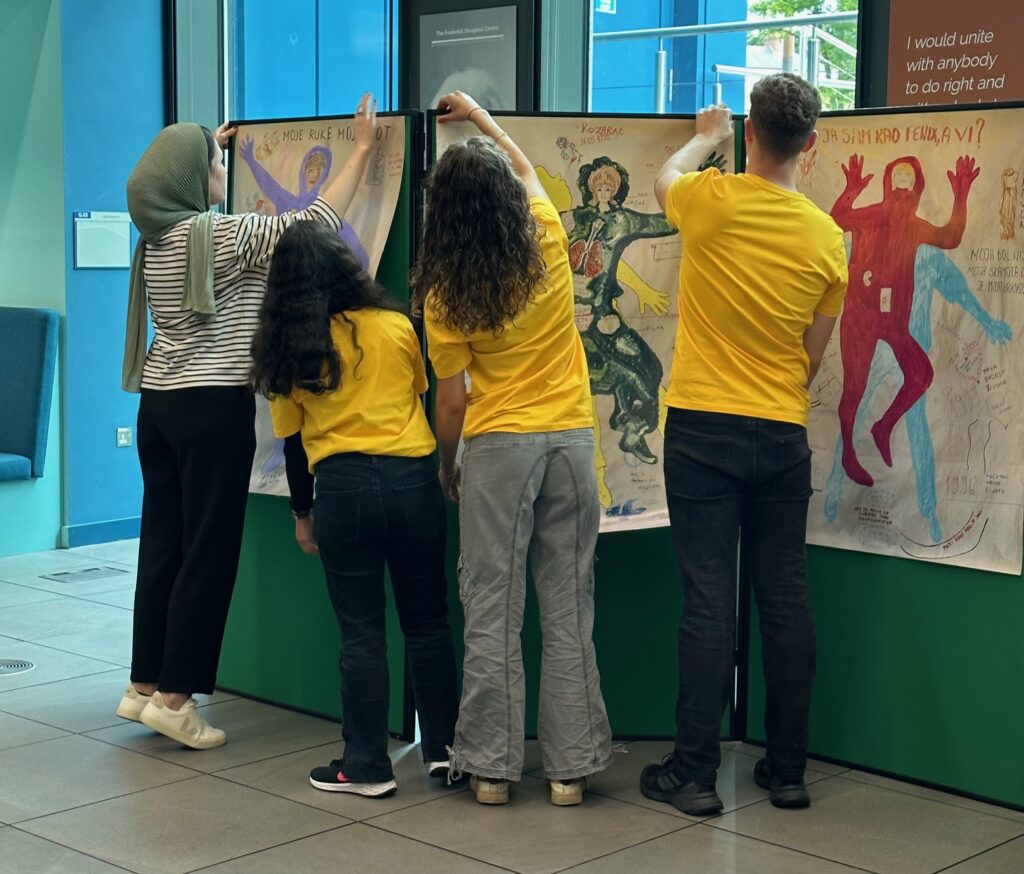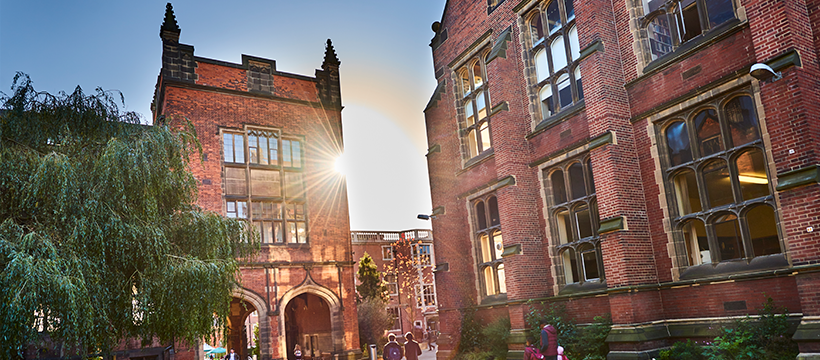
When Linda Norris and Chris Whitehead first met at a conference several years ago, they knew they wanted to create a partnership of some kind. Linda is the Senior Specialist, Methodology and Practice with the International Coalition of Sites of Conscience (ICSC), and Chris is the Dean of Global – Humanities and Social Sciences and a Professor of Museology with Newcastle University in the United Kingdom. But even in their wildest ideations, they never could have predicted they would build a first-of-its-kind program that would send dozens of students around the world, and reframe what it means to truly work with – not just within – communities.
The Spotlight Partnership, which consists of an intern program and a robust curriculum focused on community-based academic research, first started in the summer of 2021. Newcastle secured funding through its Centre for Heritage to support a group of four virtual interns to work with ICSC. Since then, the internship program has expanded to place 56 students at ICSC member sites across the globe, including in Mexico, Cambodia, Brazil, South Africa, and Lebanon. This summer alone, more than 20 interns have been matched with member sites. The internships are open to any student who’s a junior or above, all the way up to PhD candidates.
“The intern program is not only about academic knowledge, but about the students’ ability to be resilient and thoughtful about the world,” Linda explains. “Sometimes a site has specific projects they want them to work on, but often we’ll work to develop a project that meets a student’s interest. This has resulted in some incredible experiences, and there have even been some students who chose to stay working with the sites after the internship ended.”
One recent in-person intern was paired with the War Childhood Museum in Bosnia and Herzegovina. The student recounts: “Understanding resilience against tyranny and cruelty through the eyes of war-affected children was an inspiring experience.”

Another intern worked virtually with America’s Black Holocaust Museum in the U.S. They assisted with recruiting storytellers to produce exhibits, and with researching and writing their own original pieces. This was an incredible experience for both the student and the host site, which shares: “The intern’s knowledge and skills moved our interactive narrative exhibit project along much faster and better than we could have done by ourselves.”
For Chris and his team at Newcastle, it’s clear these internships have made a tremendous impact on their students – and beyond.
“Our partnership with ICSC is a result of our shared ethos and energy to foster Social and Environmental Justice. NU has been inspired by ICSC’s longstanding commitment to the transformative ways in which engagement with historical social injustices can inform contemporary pursuit of just futures,” he explains. “Our partnership is unique in bringing together two very different organisations and combining our strengths to create new opportunities for social justice. We are especially proud of our student internship scheme, lending the multidisciplinary skills and hard work of our students to Sites of Conscience around the world and giving the students life- and career-changing experiences.”
The team on both sides has grown. Joanne Sayner is co-leader of the partnership at Newcastle and Braden Paynter has been closely involved at ICSC, among many other colleagues on both sides. In addition to the intern program, ICSC and Newcastle also collaborate to host knowledge exchange workshops, webinars, and conference panels for and with faculty members. In academia, there can often be pressure for researchers to drop into a community, get the information they need, then quickly extract themselves to produce and publish their findings. For Linda, the opportunity to reframe this approach is another critical piece of this partnership.
“ICSC’s work is never about learning from someone else and going home. We help faculty to think about, ‘How do I build relationships with communities? What do I owe communities back if I’m taking their knowledge, trauma, and stories with me?’ We bring the idea that community is paramount. Newcastle faculty and staff have worked with ICSC members and partners on building those relationships,” Linda says.
That collaboration has led to some fascinating projects, from a Newcastle faculty member studying how contemporary art is commissioned at heritage sites, to the creation of a webinar that brought together Rohingya and Indigenous artists, and a curator from an American prison turned museum, to explore what it means to be asked to create art about your own community.
“When the program started, we didn’t envision it growing into what it has. Museum people talk about creating lifelong learners, and how that’s what we want our visitors to be. But that’s what we all have to be,” Linda adds. “Our members, the folks at Newcastle, students and staff – we’re all lifelong learners together. From knowledge transfer, to building connections, everyone contributes something. And that’s what makes this partnership so important.”
Posted: August 2024

